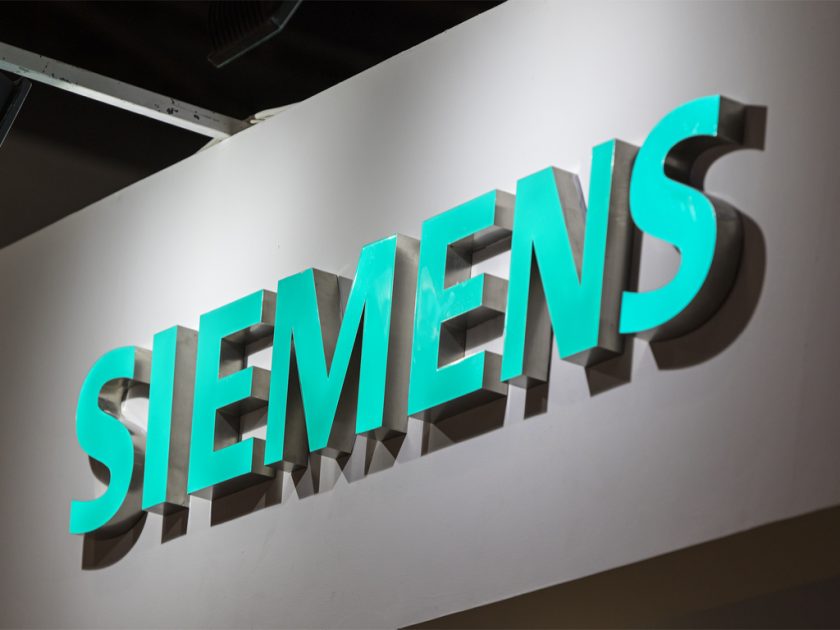MUNICH — Siemens delivered a solid performance in the second quarter, successfully meeting the high demand for digitalization and sustainability technology. Notably, the industrial software business showed strong growth with particularly high demand in the semiconductor industry. Demand from customers for the construction of data centers also showed strong momentum. Currently muted demand in the short-cycle automation business at Digital Industries, particularly in China and Europe, was largely offset by strong revenue development at Smart Infrastructure and Mobility. In addition, Siemens took a key step in focusing its portfolio with the sale of Innomotics to KPS Capital Partners for €3.5 billion [USD 3.83 billion].
“We continued to benefit from strong demand for digitalization and sustainability during our second quarter, particularly in the data center and semiconductor industries. Siemens proved its resilience with strong revenue performance in Smart Infrastructure, Mobility and industrial software; this nearly offset currently muted demand in Digital Industries’ automation business. With the right strategy, the right technologies and the right team, we are well positioned for profitable growth,” said Roland Busch, President and CEO of Siemens AG.
“With Innomotics, we have taken another significant step in optimizing our portfolio. Based on our solid performance in the first half of the fiscal year, a very strong balance sheet recognized by our latest rating upgrade, and our record order backlog, we look to the future with confidence as a leading technology company. We confirm our outlook for fiscal 2024,” said Ralf P. Thomas, Chief Financial Officer of Siemens AG.
Order backlog again at record level
At €19.2 billion [USD 20.99 billion] in Q2 2024, revenue on a comparable basis – that is, excluding currency translation and portfolio effects – was nearly unchanged compared to the prior-year period [Q2 2023: €19.4 billion (USD 21.21 billion)]. Orders declined 12 percent on a comparable basis to €20.5 billion (USD 22.41 billion) [Q2 2023: €23.6 billion (USD 25.8 billion]. This decline was primarily due to the sharply higher volume generated by major orders at Mobility in Q2 2023. The book-to-bill ratio reached a strong level of 1.07. With an order backlog of €114 billion (USD 124.62 billion), Siemens again set a record and continued to advance on its growth path.
At €2.5 billion (USD 2.73 billion), Profit Industrial Business was close to the prior-year level [Q2 2023: €2.6 billion (USD 2.84 billion)]. The profit margin was 14.0 percent (Q2 2023: 14.2 percent). Net income declined to €2.2 billion (USD 2.41 billion) from €3.6 billion (USD 3.94 billion) in Q2 2023, in which net income had benefited from a tax-free gain of €1.6 billion (1.75 billion) due to the reversal of an impairment of Siemens’ stake in Siemens Energy AG. Corresponding basic earnings per share before purchase price allocation accounting (EPS pre PPA) were €2.73 (USD 2.98) compared to €4.57 (USD 5.00)in Q2 2023, in which €2.01 (USD 2.20) of the EPS pre PPA had been due to the impairment reversal.
Free cash flow all-in at Group level from continuing and discontinued operations reached €1.3 billion (USD 1.42 billion) [Q2 2023: €2.3 billion (USD 2.51 billion)]. The decline in free cash flow was mainly due to the Industrial Business, which generated free cash flow of €2.1 billion (USD 2.30 billion) compared to €2.7 billion (USD 2.95 billion) in Q2 2023.
Clear revenue growth at Smart Infrastructure and Mobility
In a challenging market environment, order intake at Digital Industries declined 12 percent on a comparable basis to €4.3 billion (USD 4.70 billion), primarily due to ongoing elevated stock levels at customers and distributors, particularly in China. Orders in the software business, on the other hand, increased significantly mainly due to the electronic design automation (EDA) software business in the U.S. Revenue declined 11 percent on a comparable basis to €4.5 billion (USD 4.92 billion), whereby higher revenue in the software business – primarily in the EDA area – was more than offset by declines in the automation businesses, particularly for higher-margin products. Profit declined 41 percent to €741 million (USD 810 million), while the profit margin was 16.5 percent. Profit and profitability declined mainly due to reduced capacity utilization on lower revenue and a less favorable product mix in the automation businesses.
At Smart Infrastructure, orders increased 10 percent on a comparable basis to €6.1 billion (USD 6.67 billion) on contributions to growth from all businesses. It was the first time that Smart Infrastructure had exceeded €6 billion (USD 6.56 billion) in a single quarter, setting a quarterly record for order intake. On a geographic basis, growth was led by the U.S., where the electrical products and electrification businesses recorded numerous contract wins from data center operators. All businesses also contributed to an increase in revenue, which rose a total of 6 percent on a comparable basis to €5.1 billion (USD 5.58 billion), with the strongest growth coming from the electrification business, which executed strongly on its large order backlog. On a regional basis, the highest growth contribution came from the U.S. Profit increased 10 percent to €854 million (USD 933.59 million. The profit margin reached 16.6 percent compared to 15.9 percent in Q2 2023.
Mobility recorded a clear increase in revenue, which rose 6 percent on a comparable basis to €2.8 billion (USD 3.06 billion), with growth at all businesses. Orders, on the other hand, declined 49 percent on a comparable basis to €3.2 billion (USD 3.50 billion). Order intake included a €0.4 billion (USD 0.44 billion) contract for light rail systems in the U.S. and several major orders for locomotives in Europe. Q2 2023 had included a sharply higher volume of major orders, including a €2.9 billion (USD 3.17 billion) order for locomotives and related maintenance in India. Profit and profitability in Q2 2024 were up at nearly all businesses due to higher revenue and strong project execution. Profit totaled €237 million (USD 259.09 million). The profit margin was 8.4 percent compared to 9.2 percent in Q2 2023, in which profit and profitability had benefited from trailing effects related to Russia.
Outlook at Group level confirmed
Siemens confirms its outlook for the Siemens Group for fiscal 2024. The company continues to assume that geopolitical tensions do not further increase. Under this condition, Siemens expects its Industrial Business overall to continue its profitable growth.
For the Siemens Group, Siemens continues to expect comparable revenue growth, net of currency translation and portfolio effects, in the range of 4 percent to 8 percent and a book-to-bill ratio above 1.
Contrary to previous assumption, destocking by customers of Digital Industries’ automation businesses is likely to continue well into the second half of the calendar year, especially in China. For the second half of fiscal 2024, Digital Industries assumes that demand in its automation businesses will pick up compared to the first half of the fiscal year and expects large contract wins in its software business. As a result, Digital Industries now expects comparable revenue for fiscal 2024 to come in minus 8 percent to minus 4 percent below the prior year (previously expected at 0 percent to plus 3 percent) and the profit margin is now expected to be 18 percent to 21 percent (previously expected in a range of 20 percent to 23 percent).
Smart Infrastructure now expects for fiscal 2024 comparable revenue growth of 8 percent to 10 percent (previously expected at 7 percent to 10 percent) and a profit margin of 16 percent to 17 percent (previously expected in a range of 15 percent to 17 percent).
Mobility also confirms its expectations for fiscal 2024, which are for comparable revenue growth of 8 percent to 11 percent and a profit margin of 8 percent to 10 percent.
Siemens continues to expect profitable growth of its Industrial Business overall to drive an increase in basic EPS from net income before purchase price allocation accounting (EPS pre PPA) to a range of €10.40 to €11.00 (USD 11.37 to 12.03)in fiscal 2024, excluding a positive €0.61 (USD 0.67) per share from Siemens Energy Investment in the first quarter of fiscal 2024. With termination of equity method accounting in the first quarter of fiscal 2024, Siemens Energy Investment is not expected to have additional effects on EPS going forward. EPS pre PPA excluding Siemens Energy Investment in fiscal 2023 was €9.93 (USD 10.86).
This outlook excludes burdens from legal and regulatory matters.
Tagged with Biggest News, electrification, electrifiED, financial results, Siemens





